Two Aussies with virus confirmed as Christmas Island tells Prime Minister to ‘get lost’ with plan
Australians stuck in China’s coronavirus ground zero will have to fork out $1000 to be evacuated to Christmas Island and placed under quarantine.
Health
Don't miss out on the headlines from Health. Followed categories will be added to My News.
Australians stuck in China’s coronavirus ground zero will have to fork out $1000 to be evacuated to Christmas Island and placed under quarantine.
The Department of Foreign Affairs and Trade has begun contacting Australians trapped in the locked-down Hubei Province with information about the evacuation, expected to depart Wuhan within days.
Evacuees have been told they will have to pay $1000 and sign a waiver consenting to be quarantined on Christmas Island for up to 14 days, according to multiple media reports.
Once cleared of the virus, patients would then be dropped off in Perth and have to pay the cost of returning to their home city.
Questions over Christmas Island quarantine
Professor Raina MacIntyre is Professor of Global Biosecurity and Head of the Biosecurity Research Program at the Kirby Institute, UNSW Medicine has backed the government’s decision to quarantine a plane load of 600 Australians to be evacuated from Wuhan China on Christmas Island.
“It is a sensible idea. We are an Island nation without land borders, which gives us a unique advantage in trying to reduce the risk of an epidemic taking off here,” she said.
“If there is to be an epidemic in Australia, any delay is good. This buys time for development of drugs and vaccines,” she said.
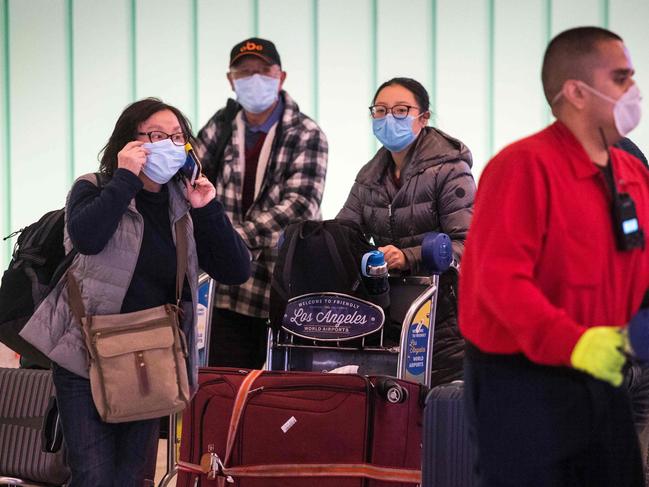
“The alternative for the current situation for people arriving from Wuhan, where NCoV is widespread, is home quarantine, which is less reliable and harder to manage with people scattered around the country,” she said.
“People would also have to be relied on for voluntary self-quarantine in this situation, and there is a risk some may break quarantine. The potential risk of people infecting each other in quarantine is there even if they are at home with family - the follow up by health authorities should allow them to be isolated rapidly if they develop symptoms,” she said.
Australasian Society for Infectious Diseases president Professor Josh Davies said it made sense to quarantine the 600 Australians rescued from Wuhan in China, but he was not sure why Christmas Island was being used.
If any of them became seriously ill they would have to be transported to a hospital on the mainland and that would mean the crew of that plane and others could be placed at risk of contracting the virus.
“It’s a strange decision, I don’t know why they did it,” he said.
The AUSMAT teams the government is planning to send to Christmas Island to monitor the group did have portable ventilators but their equipment would not provide the same level of quality and safety as a real intensive care unit in a hospital, he said.
NSW PATIENTS MAKE FULL RECOVERY
Two people in NSW diagnosed with coronavirus have been discharged from hospital in Sydney after making a full recovery.
NSW chief health officer Dr Kerry Chant said the two patients were sent home from hospital on Wednesday.
“Those cases, their symptoms have resolved completely, so no symptoms,” she said.
“We’ve also as a precaution, undertaken testing to confirm there is no virus detectable on any samples taken from those individuals.”
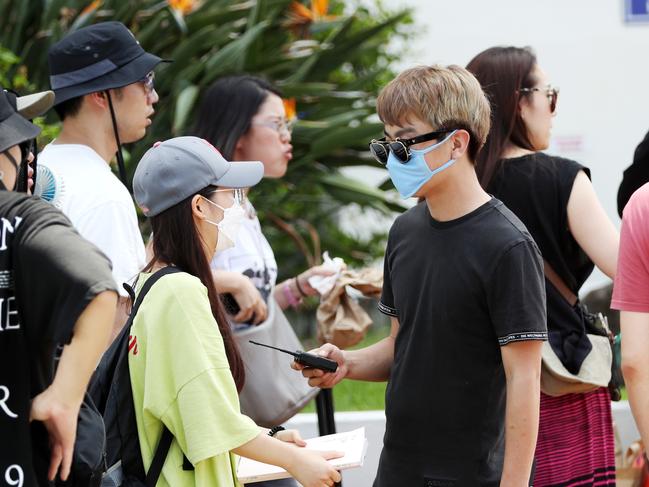
Dr Chant said the remaining two patients in NSW diagnosed with the new coronavirus were still in hospital but are “clinically stable”.
“The close contacts of the cases are being monitored by public health units and no cases have been identified amongst those close contacts,” she said.
Dr Chant said NSW Health was currently testing 11 men and nine women aged between 5 and 74 years for the virus.
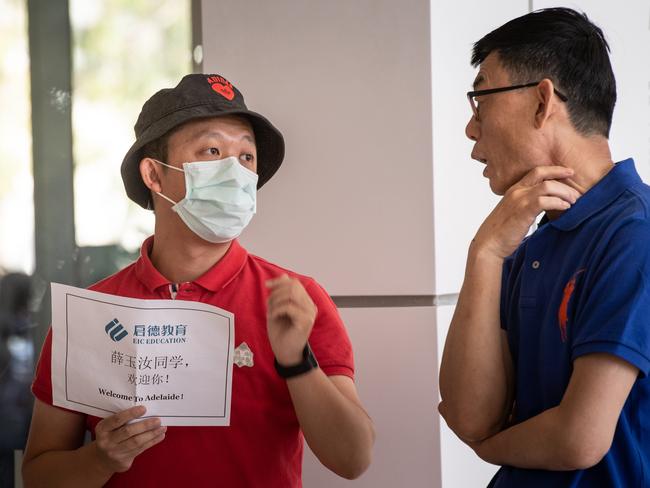
“We’ve got 20 cases currently under investigation and as I discussed yesterday, that’s a positive sign, that our numbers are increasing, because at the moment we want to increase testing and to make sure we identify every possible case at this current time,” she said.
“As our usual procedure, all of those individuals will be in isolation whilst we’re awaiting test
results.”
AIRPORT WORKERS CALL FOR ACTION
The Transport Workers Union is calling on the Morrison Government to outline its instructions to airlines and airports regarding protections on the coronavirus for airport workers.
The union is also requesting airlines and airports to supply it with details of risk assessments and protective gear, training and advice they are giving airline cleaners, caterers, cabin crew, pilots, baggage handlers, ramp workers, security personnel and engineers.
A man diagnosed with coronavirus on the Gold Coast was on flight TT566 from Melbourne to the Gold Coast on January 27, a Tigerair spokesman said.
The airline is contacting passengers and crew who were also onboard.
TWU National Secretary Michael Kaine said airport workers were on the frontline of the outbreak and needed urgent reassurances.
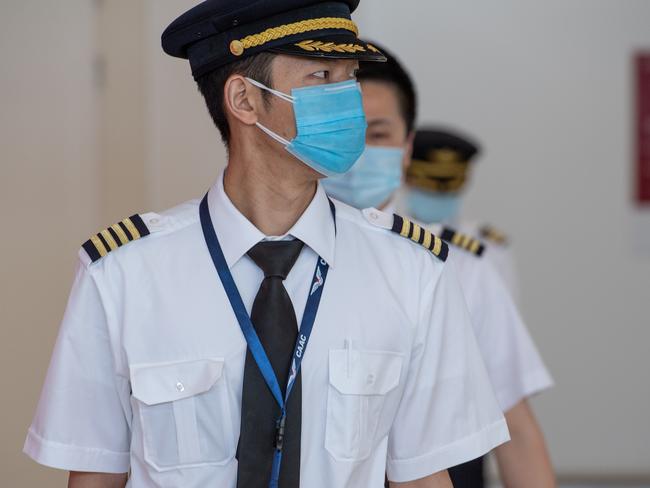
Dr Chant said testing was occurring at two hospitals - Westmead and Randwick - which had made the process faster.
She said 13 cases being investigated yesterday were cleared of the virus overnight.
AUSSIES INFECTED IN CHINA
The news comes after it emerged that two Australians have been hospitalised in the coastal province of Guangdong in South China after contracting the deadly coronavirus.
While the number of confirmed cases in Australia remains at seven, there are fears dual nationals in China with the virus could increase figures on home soil.
Guangdong health officials today confirmed the Australians were two of three foreigners in hospital wards, which also included a Pakistani student.
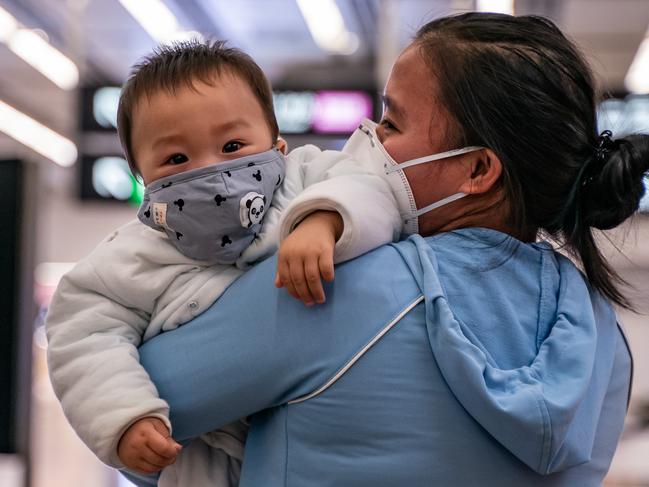
It is understood one of the Australians had travelled to Wuhan on a sightseeing tour before becoming infected.
The trio are three of more than 7800 confirmed coronavirus cases in Mainland China.
Health Minister Greg Hunt said: “So my advice … from the National Incident Centre in our morning briefing is that two Australians did contract the virus in Guangdong province.
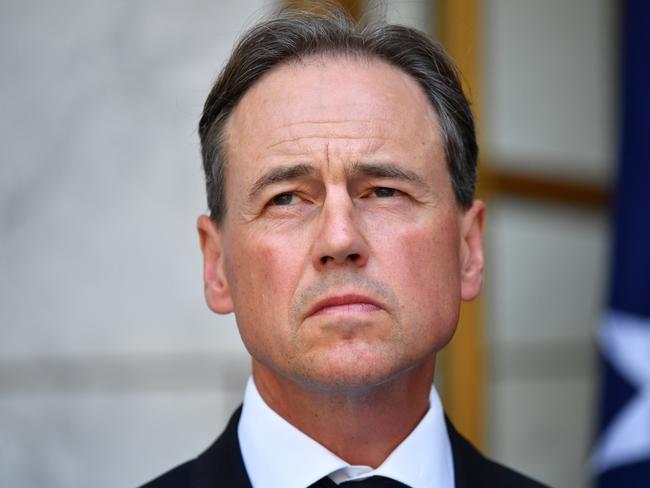
“They have been treated and the advice that I have – and I would want to be cautious on this – is that they have been released and are not seeking consular assistance at this stage.”
The virus is now in all 31 provinces and autonomous regions in China, including Hong Kong and Tibet.
A total of 170 people have died so far, and the virus has spread to at least 15 countries since December.
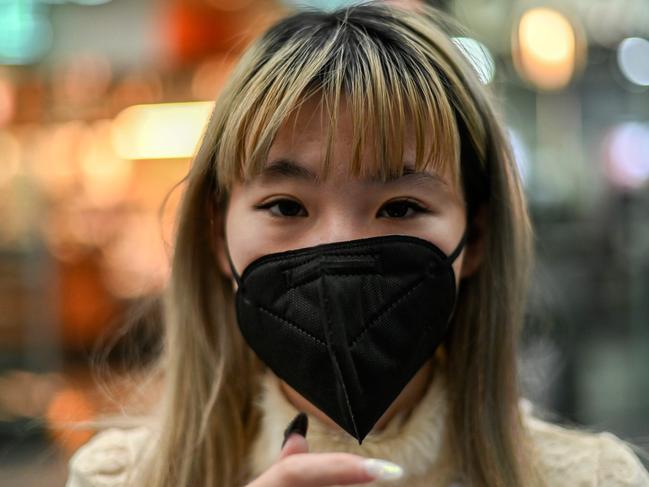
On top of the 7800 confirmed cases, there are another 9000 further confirmed suspected cases, many which have been transmitted person to person.
Some analysts in China suspected there could be at least 40,000 unreported cases of the virus in the city of Wuhan, which has been forced into lockdown, based on the spread and infection rate in other cities.
The seven confirmed cases in Australia are in NSW (4), Victoria (2) and Queensland (1), with others being tested in various states.
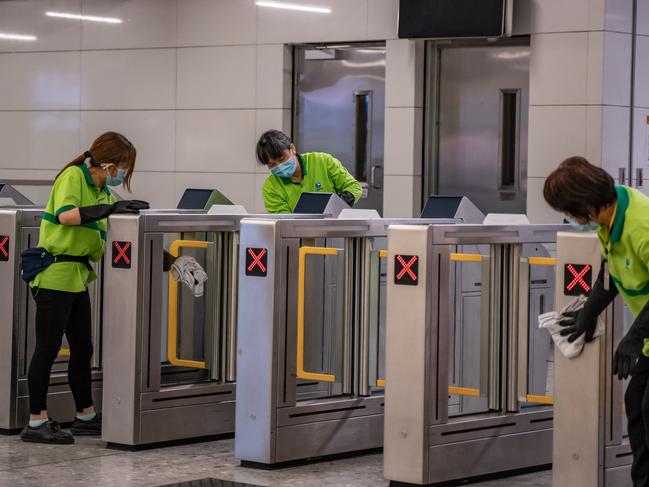
Thursday’s figures cover the previous 24 hours and represent an increase of 38 deaths and 1737 cases.
Of the new deaths, 37 were in the epicentre of the outbreak in Hubei province and one in the southwestern province of Sichuan.
The death toll, which stood at 132 on Wednesday, is still less than half the number who died in China from SARS in 2003.
GLOBAL EVACUATIONS UNDERWAY
The 195 Americans evacuated from Wuhan are currently undergoing three days of testing and monitoring at a Southern California military base.
This is to ensure they do not show signs of the virus.
A group of 210 Japanese evacuees from Wuhan has landed in Tokyo on a second government chartered flight, according to the foreign ministry.
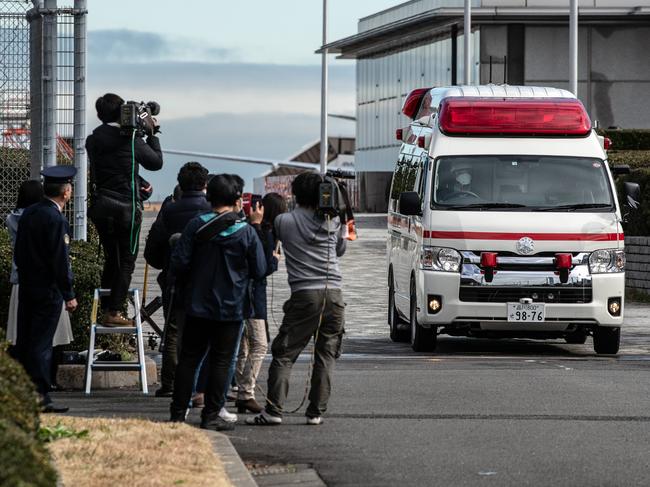
Nine who boarded the flight showed signs of cough and fever.
Three of the 206 Japanese who returned to home soil on Wednesday tested positive for the coronavirus, Prime Minister Shinzo Abe said during a parliamentary session.
ISLAND ‘NOT FIT’ FOR CORONAVIRUS EVACUEES
Australian Medical Australian president Dr Tony Bartone is calling on the government to rethink its plan to send a planeload of Australians from coronavirus affected Wuhan to Christmas Island.
“It is not fit for what they want it do,” he told News Corp.
“We are looking at a vulnerable group who have been away longer than they planned, who have been in lockdown and we are planning to put them in a facility that was not up to scratch for asylum seekers,” he said.
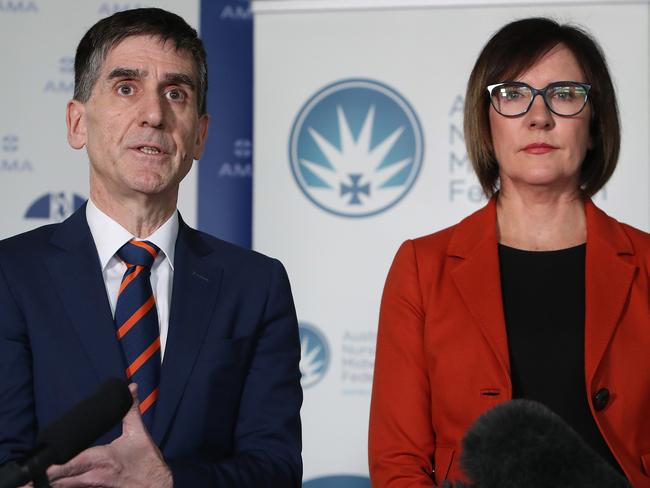
Dr Bartone said proof the island was not fit for purpose was the fact the government was planning at great expense to taxpayers, to fly in AUSMAT teams of doctors, nurses, paramedics, firefighters (logisticians) and allied health staff such as environmental health staff, radiographers and pharmacists to deal with the group.
“There are other options where you could do the same thing on the mainland where it’s more humane,” he said.
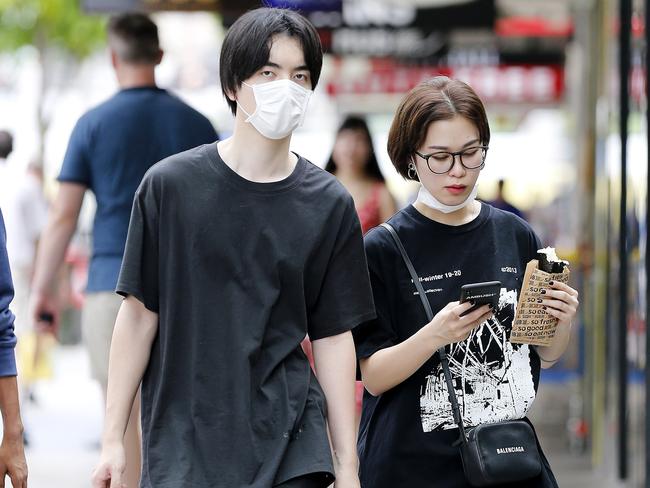
The policy is also causing confusion because people already known to have the coronavirus are being allowed to remain in isolation in their own homes.
“There is no other explanation for this change in policy except that the government is being super cautious,” Dr Bartone said.
AUSTRALIAN PREPARES FOR EVACUATION
A team of Defence officials will travel to Christmas Island today to prepare for the arrivals of potentially hundreds of Australians being medically evacuated from Wuhan.
The Morrison Government has promised to release photos of the facility on the Island so “poorly informed” critics of the scheme can see what it will be like.
Home Affairs Minister Peter Dutton confirmed there would be a cost to the taxpayer to execute the bold plan but said it was in the best interest of all Australians.
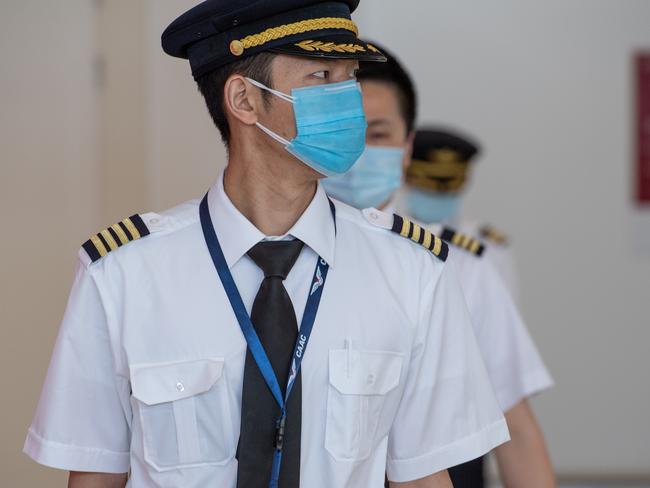
“We’re not going to allow Australians to be left in isolation or abandoned,” he said.
“Our job is to make sure we step up and support Australians, particularly when they’re travelling abroad.”
The Government is still working to secure clearance to land a Qantas plane and get people out of the coronavirus epicentre.
Australians partaking in the plan will be asked to pay for a portion of their airfare.
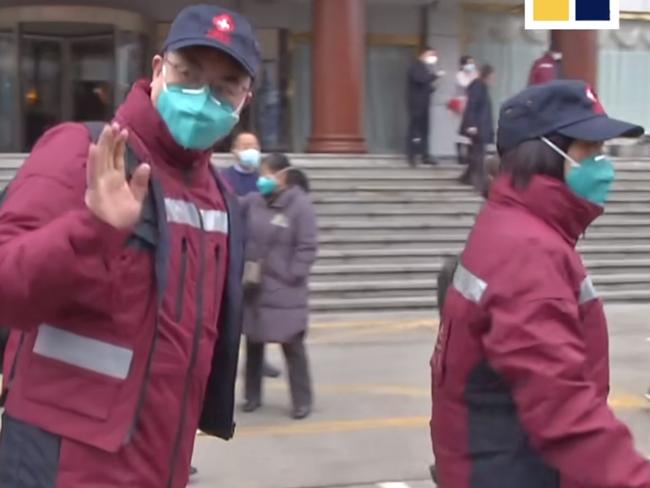
A hazmat team will be put on the Island to assess each person’s case individually.
Defence will provide catering on the island but other details, including how many medical personnel will be required to run the isolation facility, remained sketchy on Thursday morning.
This comes as two Australians in China have been confirmed to be infected with the coronavirus.
‘ADVISE STAFF TO WORK FROM HOME’
NSW parliament staff who recently travelled in China have been asked to self isolate and work from home for 14 days after their return to Australia.
The chief executive of the state’s Department of Parliamentary Services Mark Webb sent an email to staff with the request for “abundant caution” on Thursday morning.
“Members are encouraged to speak with any of your staff returning from leave who travelled to, or through mainland China in the past two weeks,” Mr Webb said.
“In such circumstance members should advise staff to work from home, if available, or make any other suitable arrangements.”
JAPAN: INFECTION UPDATE
Three people in Japan, who returned from Wuhan in China on a government-chartered flight, were confirmed to be infected with the coronavirus on Wednesday.
Public broadcaster NHK today reported two of the three had not shown any symptoms.
WORLD HEALTH ORGANISATION RECONVENES
The World Health Organisation’s (WHO) emergency committee will later today reconvene behind closed doors in Geneva to decide whether the rapid spread of the virus now constitutes a global emergency.
“In the last few days the progress of the virus, especially in some countries, especially human-to-human transmission, worries us,” WHO director-general Tedros Adhanom Ghebreyesus told a news conference on Wednesday, naming Germany, Vietnam and Japan.
“Although the numbers outside China are still relatively small, they hold the potential for a much larger outbreak.”
EVACUATION PLAN SLAMMED
The death toll spike comes as Christmas Island shire president Gordon Thompson slammed the federal government’s decision to turn the island into a “leper colony” for coronavirus evacuees.
He told the Prime Minister to “get lost” in an interview with ABC News today after hearing his beloved home would be turned into a quarantine station.
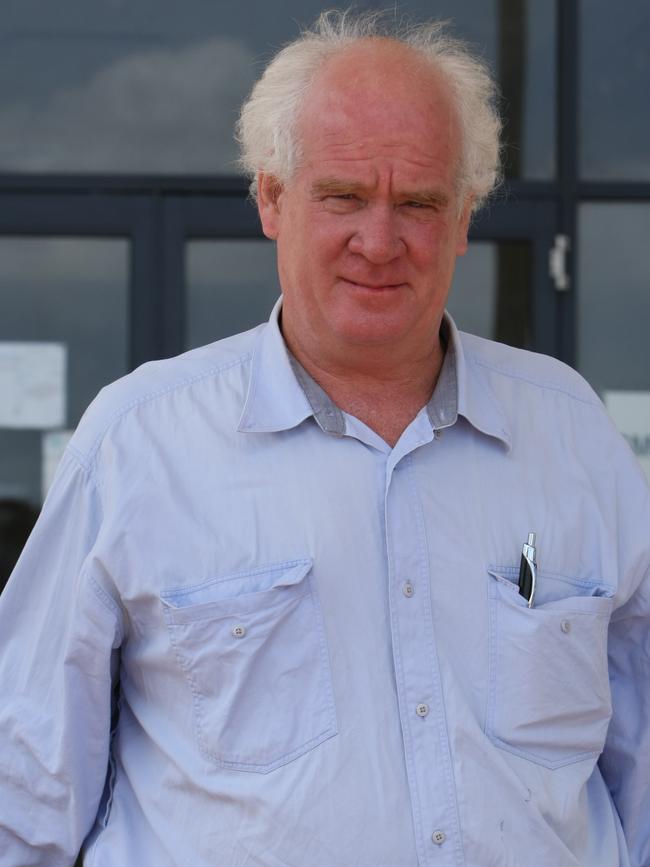
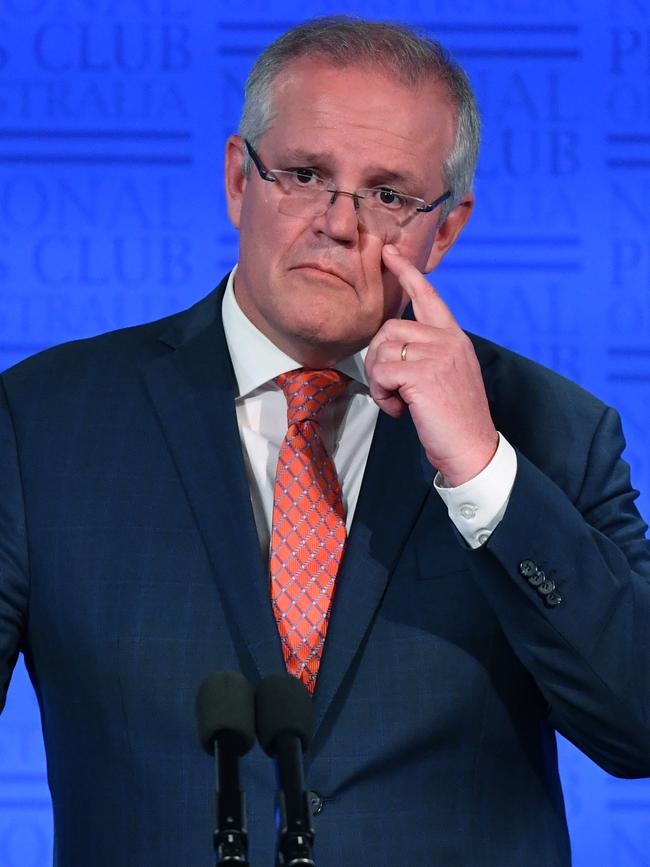
Scott Morrison announced an Australian Medical Assistance Team (AUSMAT) would be sent to Christmas Island – previously used to house asylum seekers – to support the evacuees on Wednesday, adding the Defence Force was tasked to identify the overflow of facilities.
“Saw PM’s announcement via SBS. Regressive colonial era ideas since 2001. Create convict settlement for innocent people, now we’ll be a leper colony,” Mr Thompson said.
MORE NEWS
More schools move to ban students amid China virus fears
Kobe’s chopper ‘metres from safety’
“Christmas Island remains a colony and is yet again getting the old regressive colonialist treatment from the great colonial power. Get lost, Scotty.”
Australian Medical Association president Tony Bartone added sending coronavirus evacuees to Christmas Island was not an “appropriate solution.”
“We feel that the repatriation to Christmas Island, to a place where has been previously the focus of populations under enormous mental and physical trauma and anguish, is not a really appropriate solution,” he told the Today Show today.
“We’ll be calling on the PM and the relevant Ministers to find a much more humane solution to dealing with a group of very vulnerable and concerned Australians.”
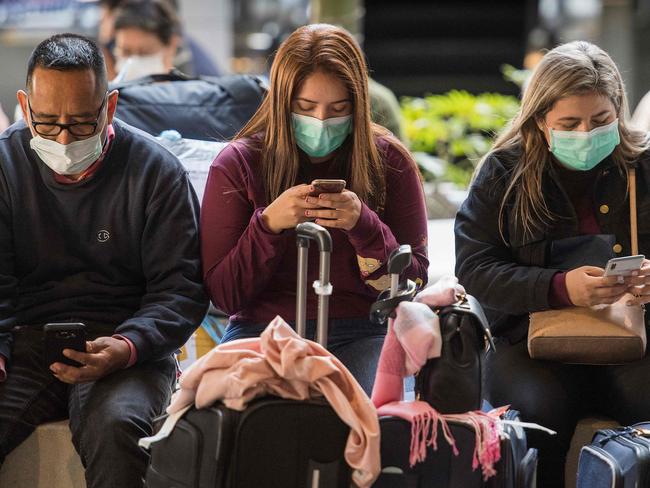
However, Home Affairs Minister Peter Dutton defended the plan to transfer Australians in need from China to quarantine facilities on Christmas Island, saying the plan was designed to keep the broader population safe and keep those evacuated away from families fighting deportation.
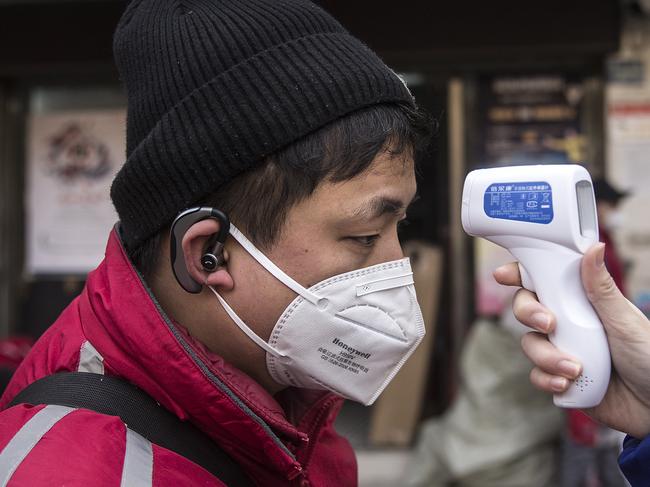
“I can’t clear a hospital in Sydney or Melbourne to accommodate 600 people. We don’t have a facility otherwise that can take this number of people,” he said, adding common areas on the island would be used.
“I want to make sure that we keep Australians safe.
“Completely separate area from that which we’re talking about now.”
More than 600 Australian citizens are in Wuhan and have registered for advice or assistance.
The government has confirmed those evacuated will have to contribute financially to the trip.
DECISION TO AIRLIFT AUSTRALIANS
A stunning airlift of hundreds of Australians stuck in China’s coronavirus ground zero is being planned by the Australian government which would then house evacuees in isolation on Christmas Island.
The sudden escalation of Australia’s response followed criticism about conflicting health advice on whether students who had been to China should attend school, delayed implementation of airport screening, and slow travel advice updates.
![Paramedics outside the Gold Coast Peppers Resort. Picture: MEGA ]](https://content.api.news/v3/images/bin/03efeaac83fc37fc033dda660b3709db?width=650)
Seven people in Australia are now confirmed to have coronavirus, with a Melbourne man in his 60s and recently returned from China diagnosed on Wednesday before Queensland’s first case, a 44-year-old Chinese man from Wuhan who was diagnosed on Wednesday night.
Prime Minister Scott Morrison said the planned evacuation operation of up to 600 Australians using a Qantas 747 would be on a “last in, first out” basis with “isolated and vulnerable” Australians prioritised.
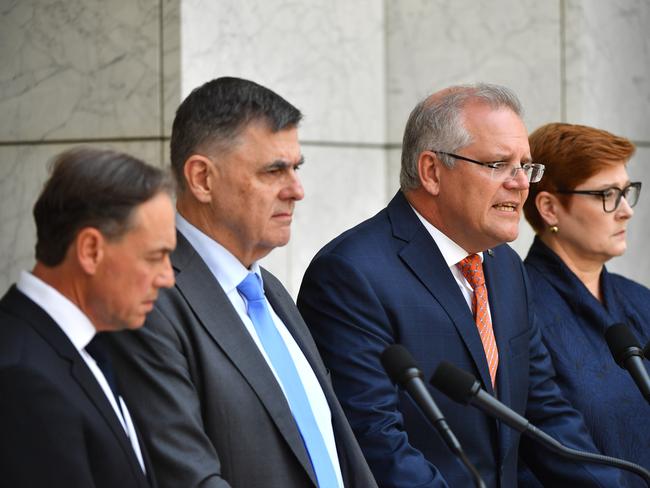
“For those who have been there who do not have an established support infrastructure in where they’re living — they would have been shorter term travellers to that area, they would not have been living there for many years — and we’re particularly focused on the more vulnerable components of that population,” Mr Morrison said.
“That’s young people, particularly infants, and those who are elderly and that would be our priority in any operation we’re able to put in place.”
Mr Morrison said an Australian Medical Assistance Team (AUSMAT) would be sent to Christmas Island, which has previously housed asylum seekers, to support the evacuees, while the Defence Force has been tasked to identify overflow facilities if needed.
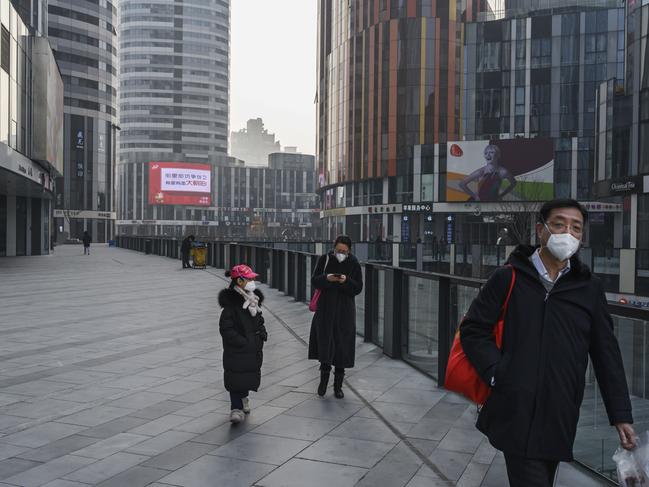
“We cannot give a guarantee that this operation is able to succeed and I also want to stress very clearly that we may not be in a position if we’re able to do this on one occasion, to do it on another occasion,” Mr Morrison said.
MORE AIRLINES CANCEL CHINA FLIGHTS
British Airways halted all flights to China and American Airlines suspended Los Angeles flights to and from Shanghai and Beijing as efforts to contain a new and deadly virus intensifies.
The British and US carriers on Wednesday joined several Asian carriers that are either suspending or significantly cutting back service there as fears spread about the coronavirus.
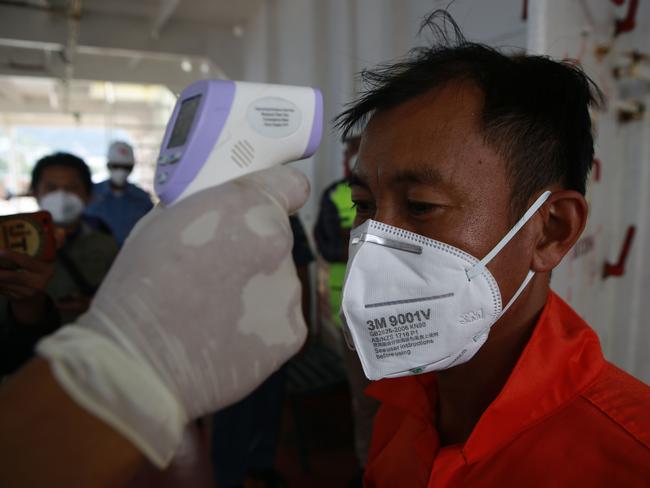
Air India and South Korean budget carrier Seoul Air are also halting all flights to the country, and Indonesia’s Lion Air plans to do the same.
Other carriers including Finnair, Hong Kong-based Cathay Pacific, and Singapore-based Jetstar Asia are slashing service.
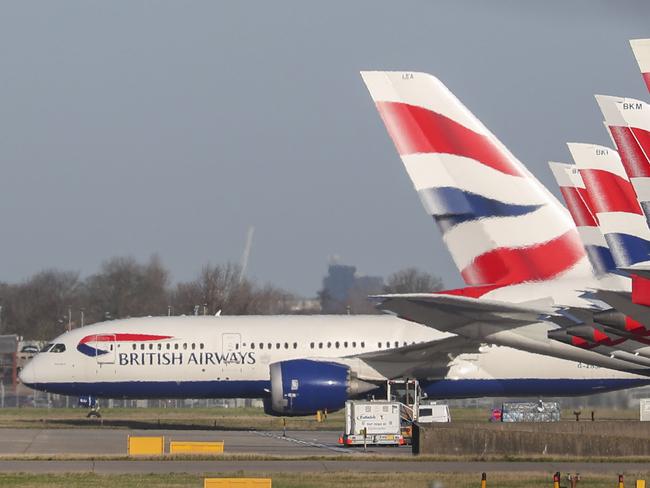
It came as the World Health Organisation’s emergencies chief said China is taking “extraordinary measures in the face of an extraordinary challenge” because of the virus outbreak.
Dr Michael Ryan made the comments to reporters after returning from a trip to Beijing to discuss the new virus with Chinese President Xi Jinping and other senior government leaders.
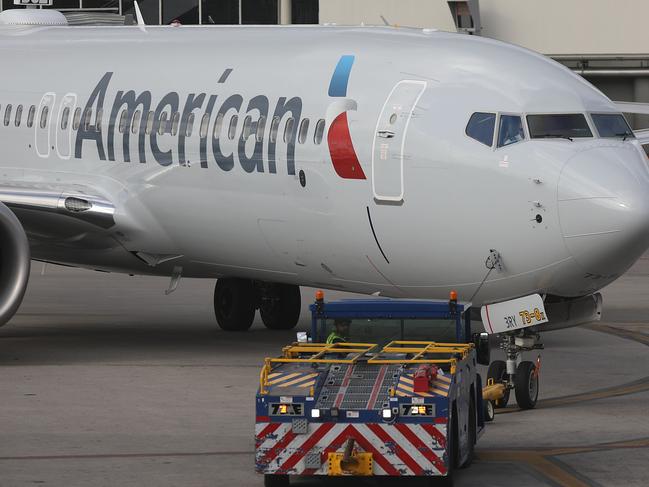
Dr Ryan says the epidemic remains centred in the city of Wuhan and in Hubei province but that “information is being updated and is changing by the hour.”
He says many of those affected experience only a mild illness and estimated that the death rate is at about 2 per cent.
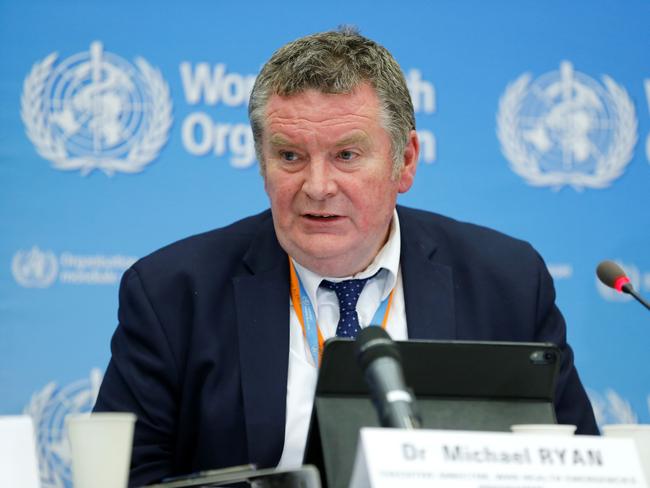
The death rate for SARS, a related virus, was about 10 per cent.
Dr Ryan said the few instances of the new virus spreading between people in countries beyond China, including Germany, are of great concern.
CHINESE FOOTBALL TEAM QUARANTINED
The Matildas’ Olympic qualifiers have been thrown into fresh chaos after the Chinese team due to play in next week’s tournament was put into isolation by health officials at Brisbane Airport on Wednesday night.
Days after the qualifying games were switched from Wuhan to Sydney — in the wake of the coronavirus epidemic — the whole Chinese squad and support staff are now being kept in their Brisbane hotel, away from other guests, until at least next Wednesday.
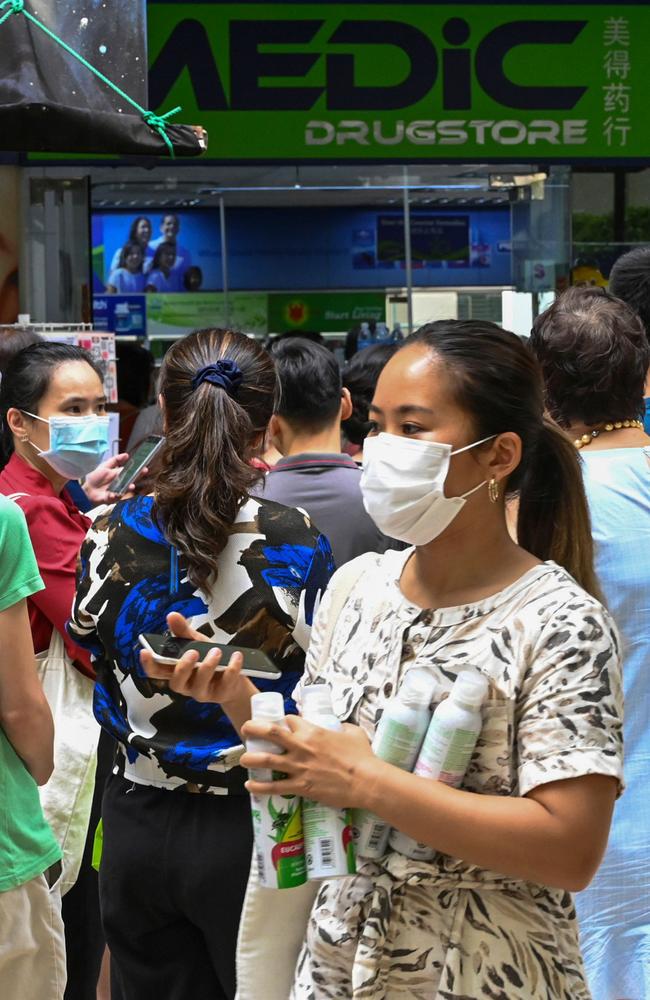
Australia is due to play China on Sunday week at Bankwest Stadium, in what’s expected to be the pivotal game in a mini tournament.
It remains unclear what will happen if the isolation period continues into next week.
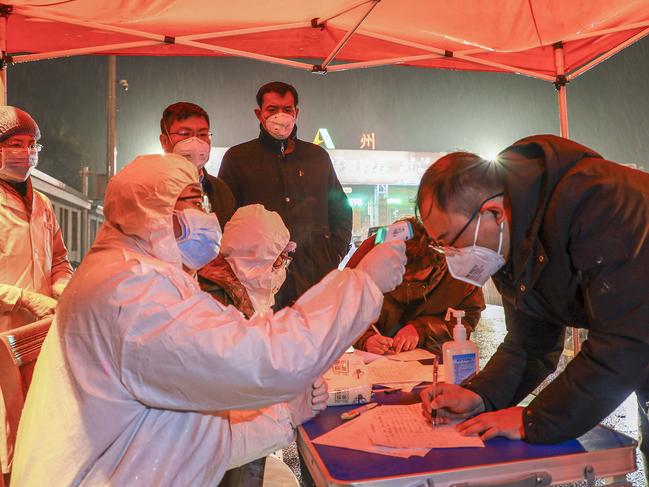
The FFA may seek special dispensation from FIFA and the AFC to allow the tournament to continue with a slight delay.
The Chinese team was isolated after training in Wuhan for a week.
TRAVEL ADVICE UPGRADED
Australia’s official travel advice to China was upgraded on Tuesday night to “reconsider your need to travel”.
Foreign Minister Marise Payne said Australians already in China should avoid large gatherings and follow strict hygiene precautions.
“I do want to indicate that we absolutely understand what a stressful time this is for those families that are impacted by the circumstances in Wuhan and Hubei province,” she said.
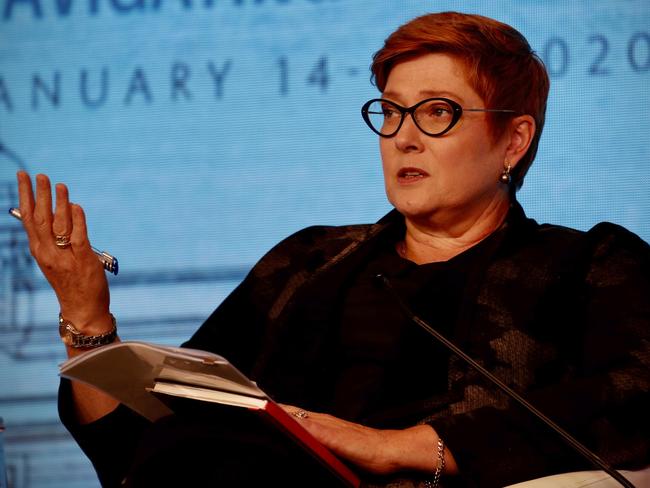
“We are encouraging people to make contact with family and friends to stay in touch with travel providers and, of course, to contact their insurers where appropriate.”
Qantas Group chief executive Alan Joyce said the airline was sorting out details about how the Boeing 747, which can carry between 416 and 524 passengers, would undertake the evacuation: “There are a lot of complexities around this and we are working through those.”
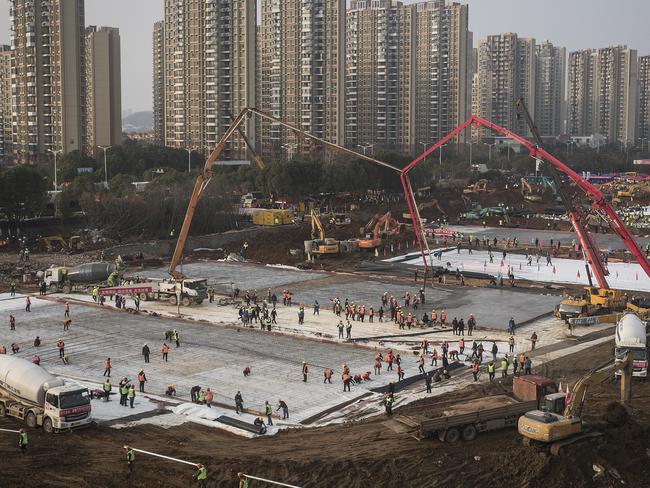
NSW Health was on Wednesday night testing 16 people — including a two-year-old child — after expanding its focus to anyone with virus symptoms who had visited Hubei province, not just Wuhan.
Australians who have recently returned from the province have been asked to stay home from work and school for two weeks, after medical experts confirmed several cases of the virus spreading before symptoms appeared.
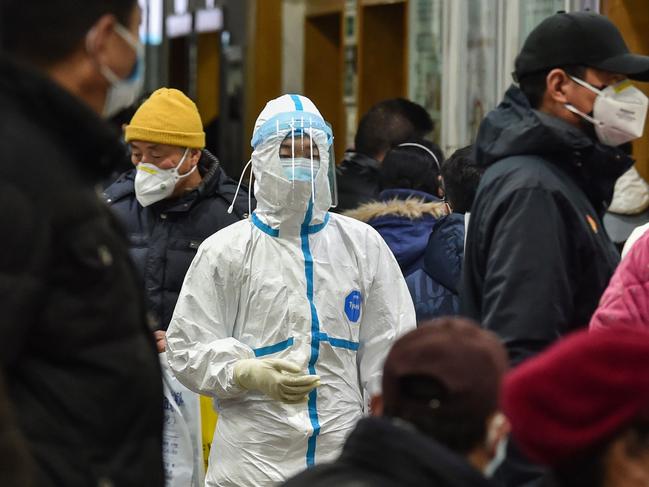
The Australian government has asked for Chinese approval to send the Qantas Boeing 747 into Wuhan to fly out some of the 600 Australians registered as being trapped in the city.
Evacuees would then be quarantined on Christmas Island for up to 14 days to ensure they are not incubating the virus.
Australian Daniel Ou Yang is currently stuck in Wuhan but said he feared he would be treated like a detainee if he was sent to Christmas Island.
MORE NEWS
Aussie subway victim dealt another blow
‘Suffered a lot’: Close pal reveals fears for Harry
Experts warn Prince Andrew could be arrested
The US and Japanese governments on Wednesday evacuated consular staff from Hubei province, while British Airways announced it would suspend bookings of London flights to Beijing and Shanghai.
But Mr Morrison said Australia was not yet considering suspending flights to and from China. “At this stage we are acting on the medical advice to us that is not suggesting that as an action for Australia,” he said.
SCIENTIST CORONAVIRUS BREAKTHROUGH
Australian scientists have managed to replicate the coronavirus in lab conditions, in a medical breakthrough which could help speed up the development of a vaccine to combat the deadly virus.
Researchers at Melbourne’s Peter Doherty Institute for Infection and Immunity have become the first to recreate the virus outside of China, the ABC reports.
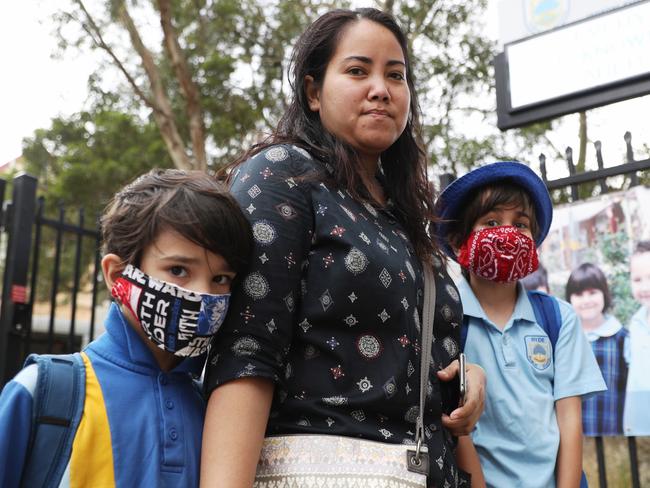
The lab-grown virus – which was developed from an infected patient – will be shared with the World Health Organisation before being given to labs across the globe.
“We got it,” Doherty Institute co-deputy director Mike Catton told the ABC. “Fantastic.”
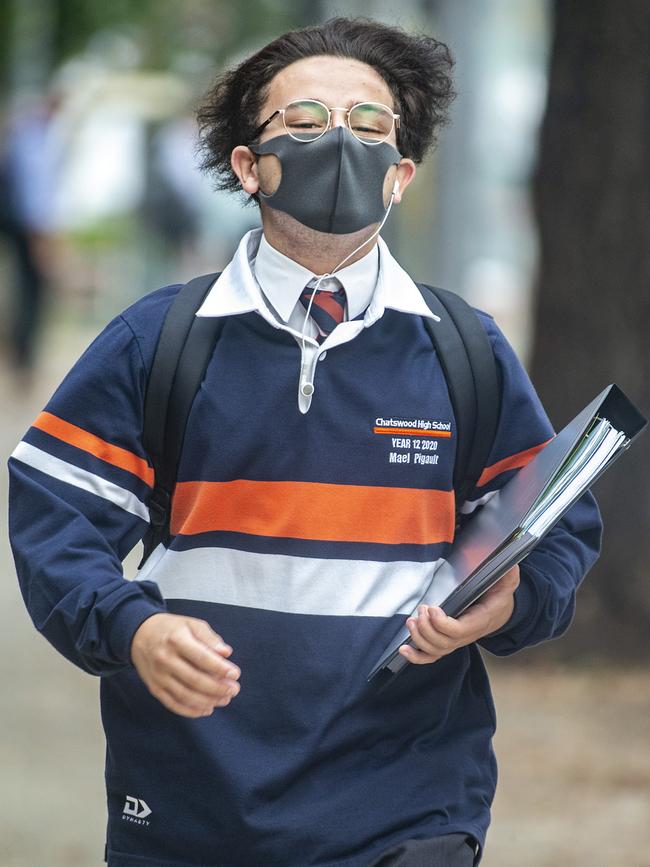
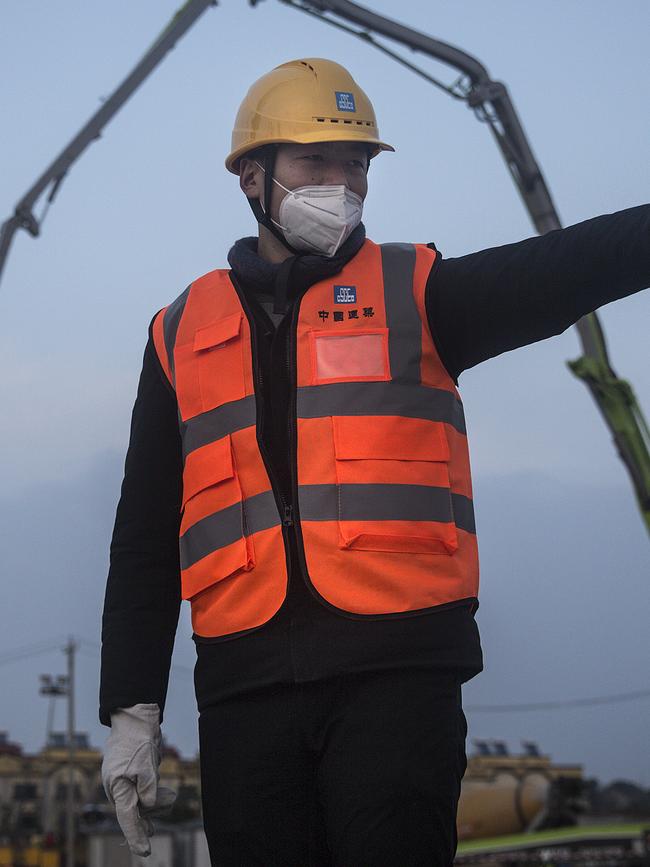
Researchers across the world are trying to develop a vaccine to stop people dying from the coronavirus.
The new respiratory disease has spread as far as Taiwan, Singapore, Japan, Australia, the United States, Malaysia, South Korea, Frange, Vietnam, Canada, Germany, Nepal, the United Arab Emirates, Cambodia, Sri Lanka, Tibet and Finland.
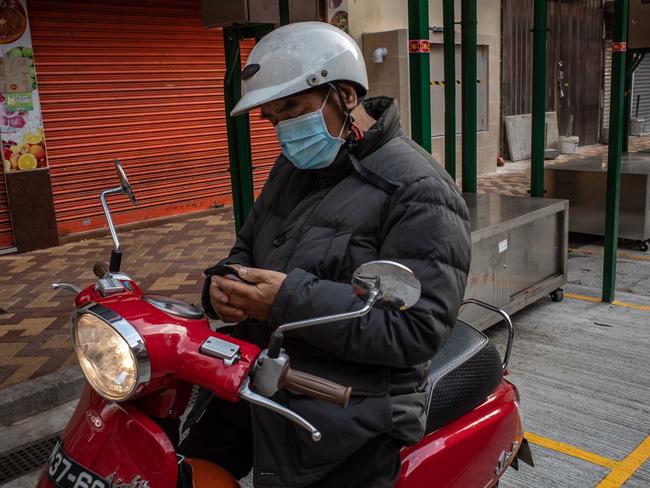
FLIGHTS TO CHINA: WHAT YOU NEED TO KNOW
Airlines flying between Australia and China are taking drastic measures to ensure passengers and staff are safe from the deadly coronavirus.
Masks are being distributed and in-flight announcements regarding the new respiratory disease are being made on flights to and from Mainland China.
Disinfectant measures and how to handle medical situations or emergencies – such as unwell passengers boarding or becoming unwell on flights – are also in place.
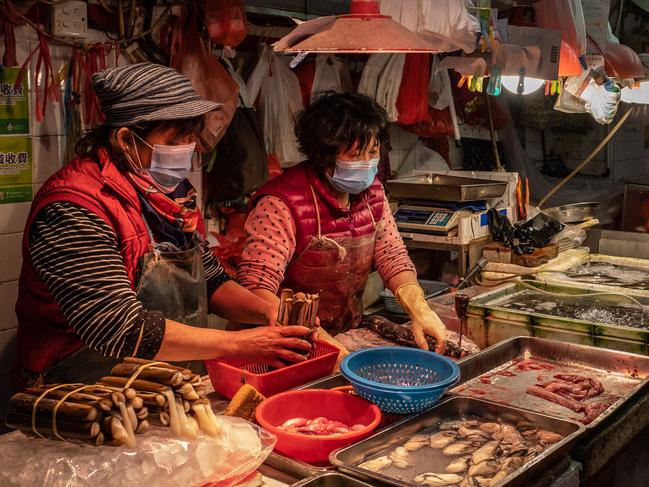
Singapore Airlines – operating 56 flights weekly to Beijing, Guangzhou and Shanghai – and Qantas – operating flights to Shanghai and Beijing – confirmed passengers had the option of cancelling, rebooking or changing flights to mainland China free of charge.
This is for customers with tickets issued on or before January 28, up to and including February 29, for Singapore Airlines and SilkAir, which operates 36 flights a week to Chengdu, Chongqing, Shenzen and Xiamen.
A Qantas spokesman confirmed the airline was closely monitoring the coronavirus situation, and added flights to and from Beijing would be stopped in February.
“This isn’t because of the coronavirus but because of an increase in competition and decrease in business demand,” the spokesman said.
“We do not fly to Wuhan so operation is normal for us. Masks are available for passengers and staff to use.”
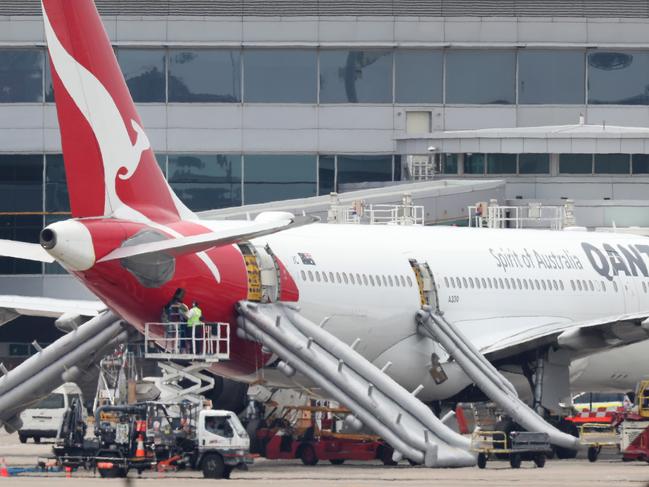
THAI Airways and THAI Smile Airways confirmed preventive measures used against the outbreak of the novel coronavirus 2019-nCoV included strict aircraft cleaning procedures, staff being required to wear gloves and face masks on flights, and passengers prohibited from touching in-flight catering equipment.
Passengers are also provided with masks and are observed throughout flights, and lavatories are required to be cleaned more frequently.
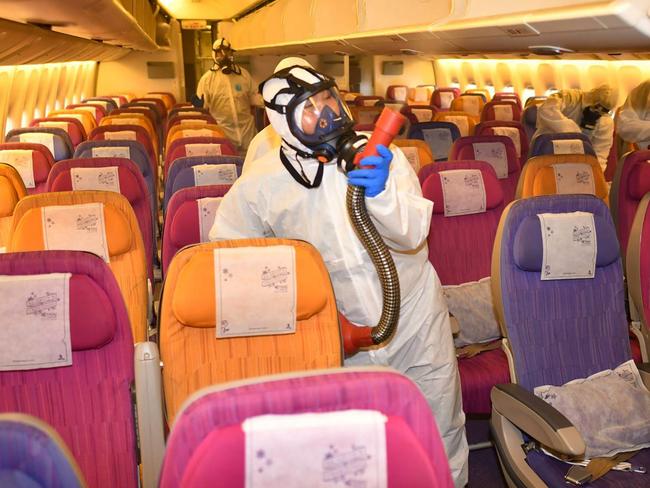
“THAI’s primary concern is in the areas of passenger services and public hygiene, maintaining high standards of in-flight cleanliness and ground services that includes passenger screening upon arrival and departure, maintaining cabin hygiene of in-flight service equipment, and staff,” THAI president Sumeth Damrongchaiham said.
Virgin Australia, which operates one flight daily between Sydney and Hong Kong, confirmed no flights had been cancelled as a result of the coronavirus outbreak.
Face masks and hand sanitiser are on board, and passengers presenting with symptoms during a flight will be moved away from other passengers.
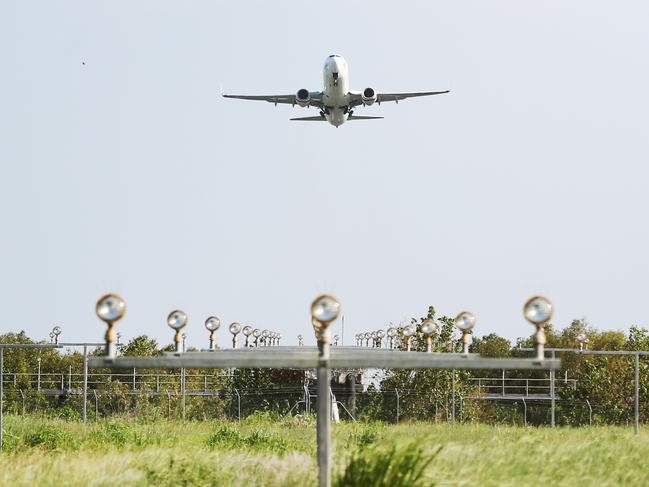
Virgin Australia is also offering passengers the option of changing their travel date or destination – no later than 30 days from original travel date – free of change.
A full refund of Velocity Redemption flights is available, as well as to the original payment form.
“We are ensuring our crew maintain high hygiene standards in the cabin, including practising proper hand sanitising procedures and cough etiquette,” a spokesman said.
“Based off consistent agreed medical advice, we are not asking crew to wear face masks on-board, however we have masks on-board flights to and from Hong Kong which crew will provide to anyone showing symptoms.”
VICTIMS ‘DIDN’T VISIT CHINA’
Japanese Health Minister Katsunobu Kato says a person in the Japanese city of Nara caught the virus even though he has not visited the Chinese city of Wuhan.
The infected man is a tour bus driver in his 60s who had driven two groups of Chinese tourists earlier this month.
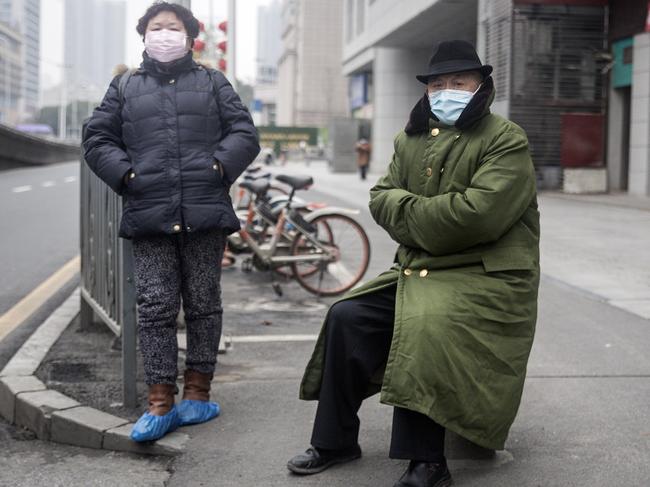
He was diagnosed with pneumonia on Saturday and has now been taken to hospital.
This comes as Germany’s first case of the virus was believed to have been infected by a Chinese colleague visiting from China who visited his workplace.
The 33-year-old from the Starnberg area, south of Munich, is in isolation as a precaution.
His Chinese colleague flew home last week and later tested positive for the virus.
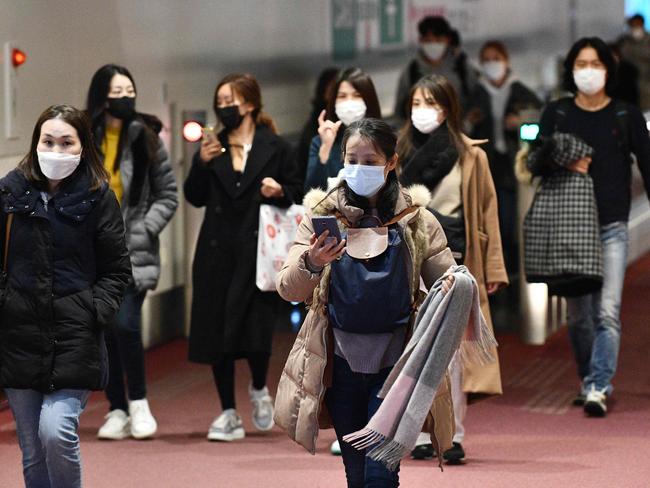
The US has asked China to step up its co-operation with international health authorities over the outbreak of the coronavirus.
“We are urging China, more co-operation and transparency, are the most important steps you can take toward a more effective response,” Health and Human Services Secretary Alex Azar told reporters.
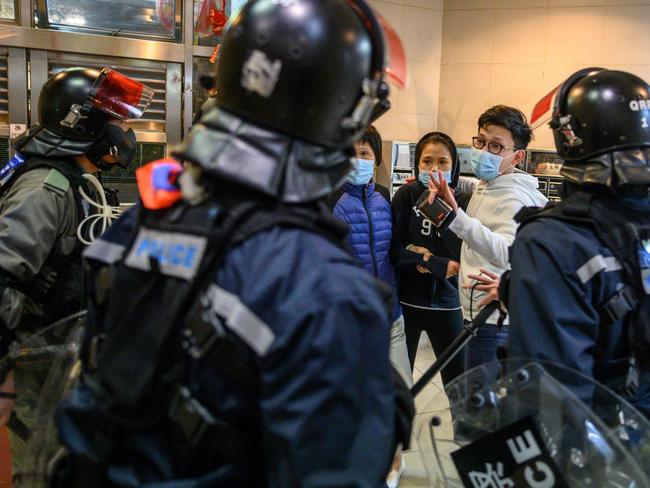
Hong Kong announced drastic measures to cut the number of people crossing into the city from mainland China.
The number of flights from the mainland to Hong Kong will be halved and all ferry services suspended to “reduce the mobility of people from both sides”, city leader Carrie Lam said, adding six of 14 border checkpoints will close from January 30 “until further notice”.
AUSSIE ECONOMY TO TAKE A HIT
Future fund chair Peter Costello has warned the Australian economy will not escape the fallout from the coronavirus outbreak, with tourism operators set to be hard hit.
The former federal treasurer said the deadly virus represented a “big short term risk” to the economy, adding it would have a “significant impact” on tourism operators who have already been hard hit by bushfires.
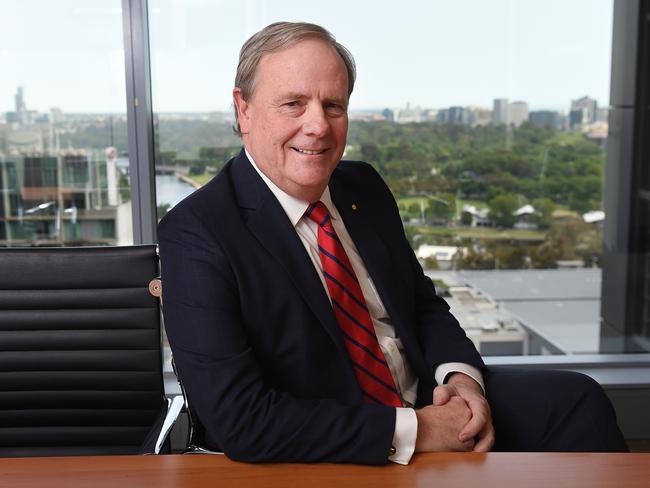
“In the short term there is obviously going to be an effect on tourism in Australia,” Mr Costello said.
“That will affect airlines, it will affect airports, it will affect general consumption at a time when many in the tourism industry have also suffered the burden of bushfires. That will have a significant impact.”
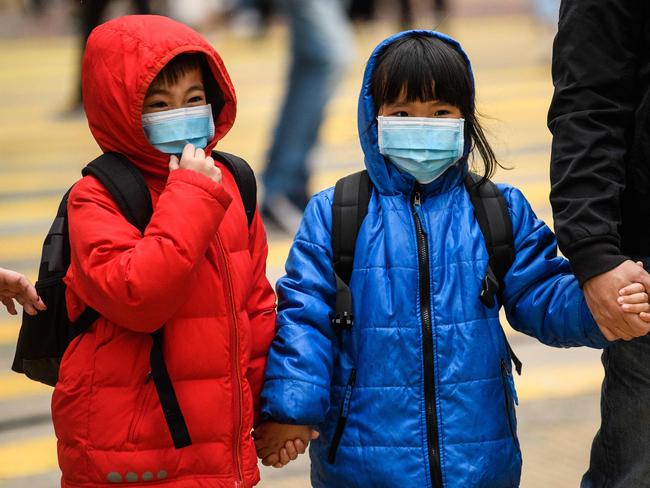
Mr Costello was speaking as the Future Fund announced it generated a 14.3 per cent return in 2019.
That tipped $21 billion into the coffers of the nation’s sovereign wealth fund which is now worth $168 billion.
HAUNTING VIDEO OF WUHAN IN LOCKDOWN
Wuhan residents confined to their homes amid the deadly coronavirus outbreak are chanting in solidarity and to “keep going”, new vision shows.
The footage, currently circulating social media, shows residents shouting “Wuhan, Jiayou” to their apartment dwelling neighbours, and the words are echoed back.
From my friend's apartment in Wuhan, China. People from the neighborhood chanting from their apartments "Wuhan add oil" ("jia you" åŠ æ²¹) meaning "come on Wuhan!" or "Wuhan you can do it!". #coronarvirus #China #wuhan #WuhanVirus #Hubei #virus #coronavirus #CoronaOutbreak pic.twitter.com/GuHxUYZ4OG
— Rameez Hamza 🇵🇰🇦🇪 (@iamramizxrami) January 27, 2020
When translated into English, “Jiayou” means to “add oil”, or “keep going” and “hang in there”.
It is a common expression used in China to support one another and for encouragement.
The vision was uploaded in the early hours of Tuesday.
HOW TO STOP THE VIRUS
Experts say the first step to containing the virus in Australia was a simple question – have you travelled overseas recently or been in contact with someone who did?
It should be compulsory for every hospital to put this question on admission forms and GPs too should ask it of their patients because it is the best way of identifying who is at risk, ANU epidemiologist and infectious diseases specialist Professor Peter Collignon said.
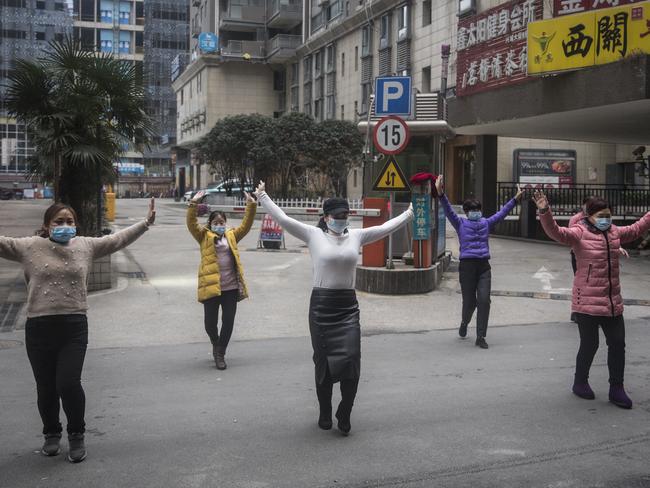
“They ask you to provide your Medicare card but how hard is it to ask a question about travel? I’ve been trying to get it made compulsory for years,” Prof Collignon said.
It is one of the key lessons we should have learned from the failure to stop the spread of two other deadly coronaviruses SARS in 2003 and MERS in 2012.
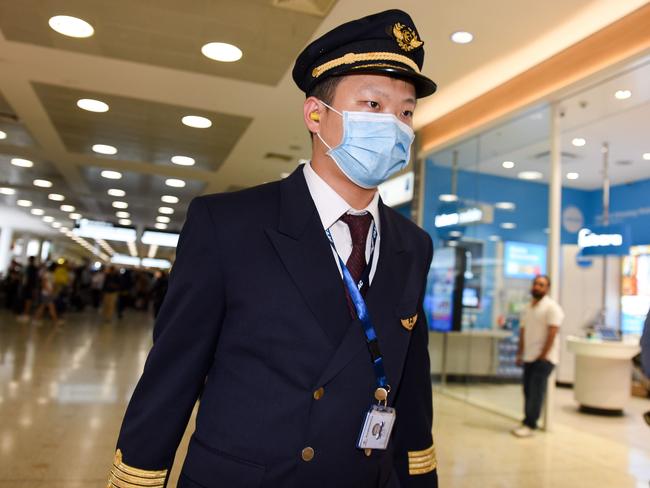
Another is hospitals, GPs and other health facilities must isolate sick travellers and not allow them to sit in the waiting room for hours infecting others, Head of the Biosecurity Research Program at the Kirby Institute at University NSW Prof Raina McIntyre said.
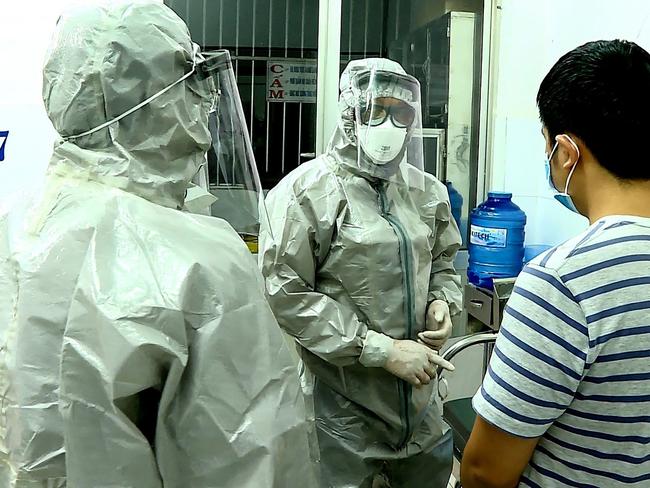
In 2002 during the SARS outbreak exemplary infection control in Vancouver, Canada stopped the spread of the virus in the city but poor infection control in hospitals in Toronto, on the other side of the country, saw nurses and doctors catch the disease and die.
The other failure in the 2002 SARS outbreak was secrecy.
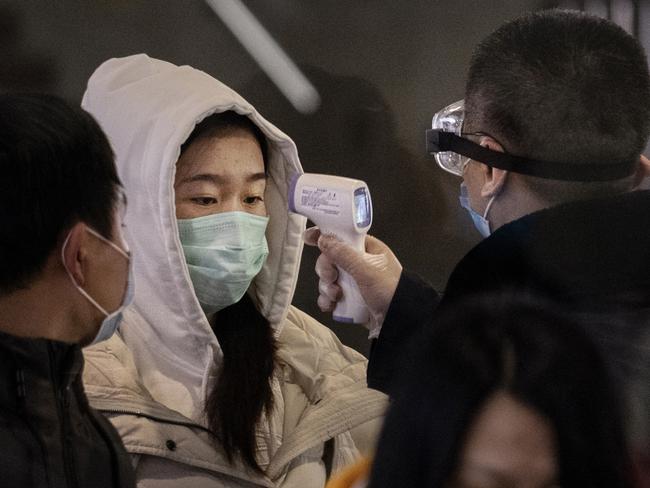
China was not open with international health authorities about the scale of the problem or the death toll. Initial signs are it is being more prudent this time.
The Australian Medical Association wants Australia to set up a Centre for Disease Control to manage outbreaks like this and says the nation is one of the few developed countries without one.
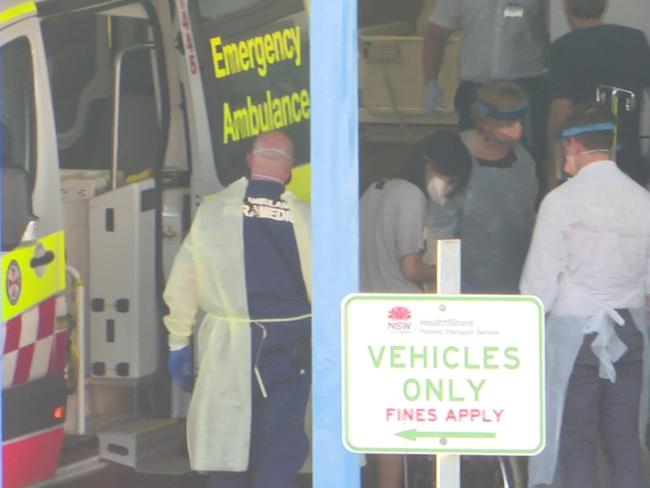
Coronaviruses are a family of viruses causing illnesses from the common cold to severe illnesses.
They typically infect animals but a few affect humans like Middle East Respiratory Syndrome (MERS) and Severe Acute Respiratory Syndrome (SARS).
As the latest coronavirus is new to humans, people do not have immunity to it.
Australia is the only OECD country without a Centre for Disease Control. We must join other developed nations in playing a global role in combating infectious diseases #coronavirus #auspol #medtwitter https://t.co/c1mg8D88UG
— AMA Media (@ama_media) January 24, 2020
The first patient to die from the virus was a 61-year-old man who shopped at the Huanan Seafood Market in Wuhan, which sells live animals and exotic meats including poultry, snakes, bats, young wolves and civet cats (previously linked to SARS).
Researchers who studied the virus reported in the Journal Medical Virology this week it may have been transmitted to humans via a snake and the virus appeared to be a mix of a bat coronavirus and snake coronaviruses.
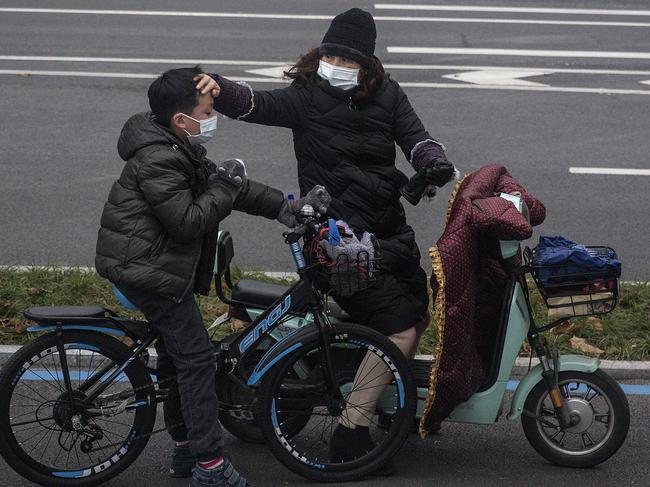
Chinese authorities have now confirmed the disease is spreading from human to human via droplets from sneezes and coughing and via surface contact with objects touched by those infected.
Prof Collignon said the way epidemiologists calculate whether a new virus was likely to go “boom” and spread quickly was its R0 factor or its reproductive ratio.
Latest Coronavirus (2019-nCoV) seems to have jumped to humans from snakes. Biblical & a wee chilling. "On Wednesday, a report in the Journal of Medical Virology by a team of Chinese researchers suggested snakes were the most probable wildlife animal reservoir for 2019-nCoV."
— Amy Grace Loyd (@AmyGracieL) January 24, 2020
This factor represents the average number of people one person with the disease can infect.
For example one person with measles can infect eight others but if a virus has an R factor of less than one it will die out.
In 2002 one “super spreader” of the SARS virus, a Chinese doctor who stayed in a hotel in Hong Kong, gave the virus to 16 others in a single night and 14 of them travelled overseas the next day.
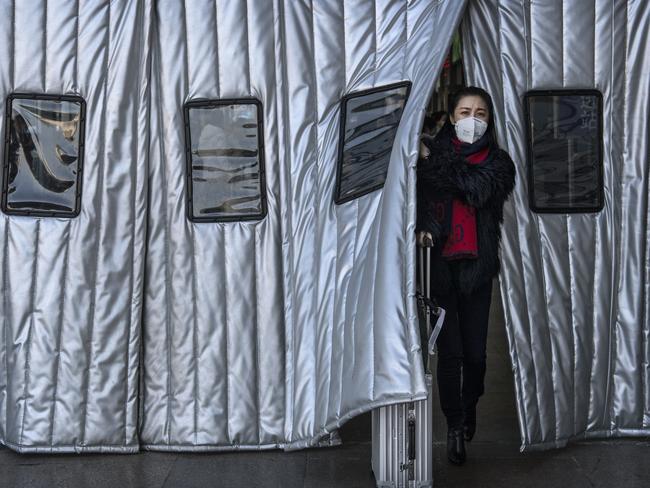
“On the evidence so far this virus is less transmissible than SARS,” Prof Collignon said.
The other factor that makes the disease worrying is its capacity to kill.
Some coronaviruses can have severe death tolls.
The MER virus has a fatality rate of 26 per cent, SARS had a fatality rate of 12 per cent.
To date the 2019 coronavirus is estimated to have a fatality rate of around two to three per cent and growing, is similar to the 1918 flu pandemic and compares to the fatality rate from the regular flu of less than one per cent.
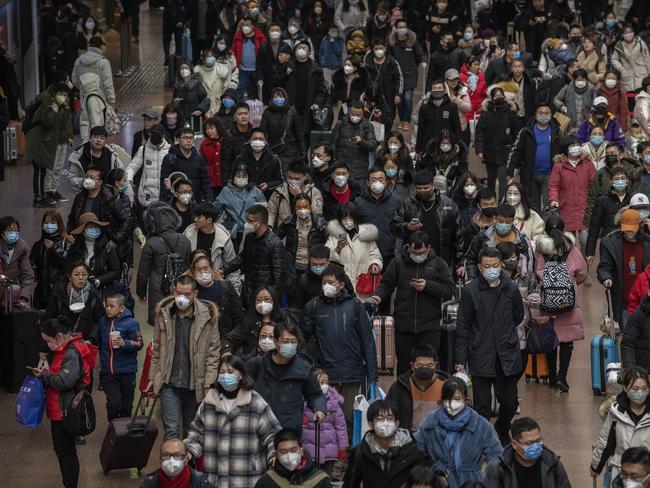
The disease is hard to detect because symptoms could be as mild as a common cold but in severe cases it can cause severe pneumonia, fever, shortness of breath and death.
China has sequenced the genome of the virus and shared it with the World Health Organisation.
Perhaps Prof Brendan Murphy who announced that none of the passengers arriving in Australia with #coronavirus were sick while travelling so contacting other passengers was just precautionary should do another update. The handling of this by this gov is going to be like the fires
— 😔Camybobany. #AshamedOfAustralia (@camybobany) January 26, 2020
German and Hong Kong scientists have already developed tests for it.
Most of the people killed by the virus so far have been elderly or already had health problems which have made them more vulnerable to the illness.
People who develop severe pneumonia from the virus could go into septic shock (life threatening low blood pressure), respiratory failure or cardiac failure that could kill them.
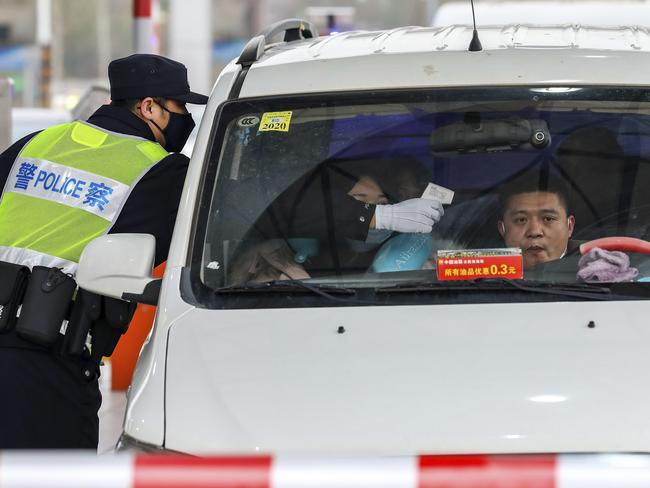
There is currently no medicine to treat any coronavirus so doctors can only provide supportive care to those with severe symptoms.
They can give medicine to raise a person’s blood pressure, antibiotics to control secondary infections, provide machines to help support a person’s breathing and kidney function while their own body fights the virus.
– with wires


